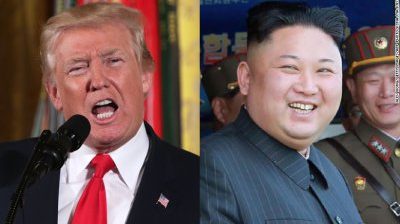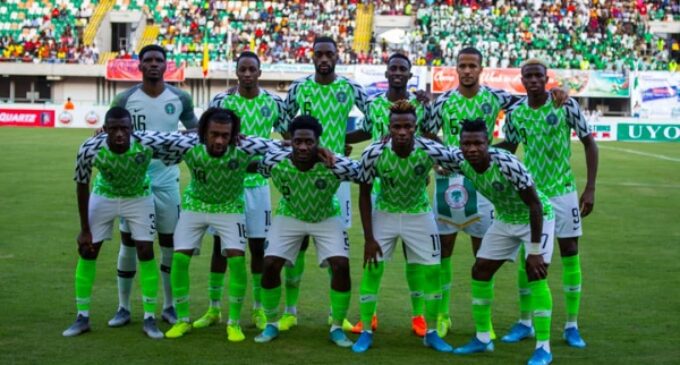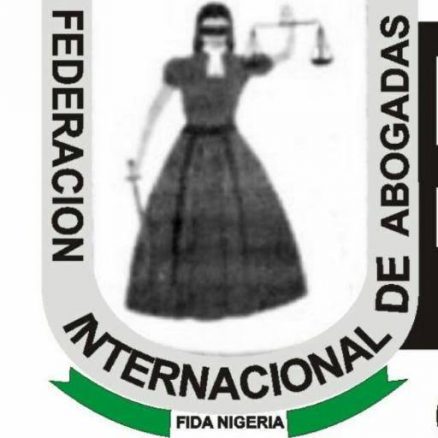US President Donald Trump says there is “no time limit” for North Korea to denuclearise and that there is no need to rush the process.
It marks a shift in tone from Mr. Trump who previously said nuclear disarmament would start “very quickly.”
Last month, the US president and North Korean leader Kim Jong-un held historic talks and pledged to denuclearise the Korean peninsula.
The accord did not have a timetable for the process or plan to carry it out.
Since the meeting between Mr. Trump and Mr. Kim on June 12, there has been little reported progress towards denuclearisation.
Last week North Korea accused the US of making “gangster-like” demands for the process, and branded the US attitude at high-level talks as “extremely troubling.”
Mr. Trump said on Tuesday that talks with Pyongyang were going fine.
“We have no time limit. We have no speed limit,” the US president told reporters.
“Discussions are ongoing, and they’re going very, very well,” he said, adding, “The sanctions are remaining. The hostages are back. There have been no tests. There have been no rockets going up for a period of nine months, and I think the relationships are very good, so we’ll see how that goes.”
The US president also said North Korea’s nuclear threat had been a major topic during his meeting with Russian President Vladimir Putin earlier this week.
“President Putin is going to be involved in the sense that he is with us,” Mr. Trump said.
The president’s latest comments on the timeline for denuclearisation appear to shift from his position ahead of the summit with Mr. Kim, when he said denuclearisation should start “without delay.”
Following the meeting, he said the process would start “very quickly.”
But since then, Mr. Trump has suggested that dismantling North Korea’s nuclear arsenal could be some way off.
Speaking at a press conference in the UK last week, the US president said negotiations with Pyongyang would be “probably a longer process than anybody would like.”
Following the June 12 meeting, US Secretary of State Mike Pompeo said he hoped to see “major disarmament” by North Korea by the end of 2020.
……………………………………………………………………….
Peru arrests 50 in Colombia border drugs bust
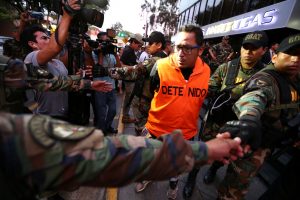
Security forces in Peru have arrested more than 50 people in the isolated jungle region of Putumayo in the first week of a 60-day state of emergency.
President Martin Vizcarra said on a visit to the region, on the border with Colombia and Ecuador, that four drug production facilities had been found.
He said most of those detained were from Colombia.
Peru has said it fears that dissident Colombian Farc rebels are trying to establish a presence in the region.
The operation followed a series of attacks by Farc rebels on security forces in neighbouring Ecuador.
More than 350 members of the Peruvian police and armed forces used five helicopters, three planes and two boats in joint operations with their Colombian counterparts in the area, reports said.
“We’re firm, we’re clear, we’re going to defend our sovereignty and our territory,” Mr. Vizcarra said.
The Colombian government agreed to a peace deal with Farc rebels in 2016 after more than 50 years of conflict.
However about 1,200 Farc fighters have refused to lay down their arms and have carried on drug trafficking activities, the Colombian authorities say.
……………………………………………………………………
MH17 victims’ father condemns Trump over Russian ‘lie’

The father of three Australian children killed when a Malaysia Airlines jet was shot down has delivered a scathing attack on Donald Trump over his attitude to Russia.
Anthony Maslin’s children were among 298 people who died when flight MH17 was downed over Ukraine in 2014.
Investigators found that Russia was responsible for the missile used in the strike – a conclusion denied by Moscow.
Mr. Maslin has taken aim at the US president over Russia’s “lie.”
Earlier this week, Mr. Trump declined to accept US intelligence agencies’ conclusion that Moscow had meddled in the 2016 presidential election.
He has since reversed his remarks following widespread anger.
The controversy coincided with the fourth anniversary of the MH17 tragedy.
In a Facebook post addressed to the US president, Mr. Maslin called on Mr. Trump to eschew talk of “fake news” in favour of “irrefutable facts.”
“That passenger flight MH17 was shot out of the sky and 298 innocent people were murdered is an irrefutable fact,” he wrote alongside a photo of his children Mo, Evie and Otis.
“That the plane was hit by a Russian missile has been proven to be an irrefutable fact.
“That this killed our 3 beautiful children and their grandfather, and destroyed our life and many other lives in the process, is an irrefutable fact.”
He added: “That the man whose arse you’ve just been kissing did this, and continues to lie about it, is an irrefutable fact.”
Russia has always insisted it played no part whatsoever in the downing of MH17.
The victims of MH17 included 193 Dutch nationals, 43 people from Malaysia, and 27 from Australia.
Others on board came from countries including Indonesia, the UK, Belgium, Germany and the Philippines.
In May, Australia and the Netherlands said they held Russia responsible for the shooting down of the plane, which had been en route from Amsterdam to Kuala Lumpur.
The US, EU, Nato and the UK added their own calls for Russia to accept responsibility for the incident.
On Tuesday, Australian Prime Minister Malcolm Turnbull described Mr. Trump as an “American patriot” who was doing his best for the US.
However, Mr. Turnbull reiterated that he did not believe Russia’s stance on MH17.
“I certainly don’t trust Vladimir Putin when he says he or the Russian Army had nothing to do with the downing of MH17,” he told News Corp Australia.
His government has said it will continue to press Russia to take responsibility for the tragedy.
…………………………………………………………………
Google braced for giant Android fine from EU
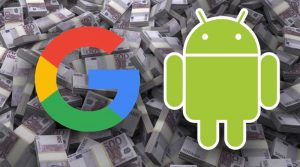
Google will learn if it faces a record fine over its Android operating system in the coming hours.
The European Commission has claimed the US tech giant’s mobile device strategy unfairly strengthened its dominance of search.
The regulator can fine the firm up to 10% of its annual revenue – which amounts to $11.1bn (£8.5bn).
It could also force Google to unbundle Android from its Chrome browser and other services.
Competition Commissioner Margrethe Vestager has previously ordered the firm to pay a 2.4bn euro ($2.8bn; £2.1bn) fine over its shopping comparison service – a ruling Google is in the process of appealing against.
In addition, her investigators are probing the practices of its advert-placing business AdSense as part of a separate inquiry.
The Android ruling was originally expected earlier this month, but Reuters reported that it had been postponed to avoid a clash with President Trump’s visit to Europe.
The European Commission first began scrutinising Android in April 2015, following a complaint by Fairsearch – a trade group that originally included Microsoft, Nokia and Oracle among its members.
At that point, Android had a 64% share of Europe’s handset market, according to research firm Statcounter.
It has since grown to 74%.
The commission subsequently made three specific allegations of anti-competitive behaviour, saying Google was:
Requiring Android handset and tablet manufacturers to set its search engine as the default and pre-install the Chrome browser before allowing them to offer access to its Play app store.
Preventing manufacturers from selling mobile devices powered by rival operating systems based on Android’s open source code.
Giving devicemanufacturers and mobile networks financial incentives to provide its own search service as the sole pre-installed option.
In response, Google denied obliging device-makers to preload any of its apps.
It also claimed that distributing Google Search and the Play store together had made it possible to offer its services for free.
“The commission’s approach… would mean less innovation, less choice, less competition, and higher prices,” its global affairs chief blogged.
He added that in any case, Apple and its rival iOS operating system gave consumers an alternative.
For its part, Fairsearch wants the regulator to look to the future.
“The anti-competitive harm is likely to go far beyond smart mobile devices,” said spokesman David Lawskey.
“As connectivity is added to substantially all innovative devices, the list of potentially affected devices, such as smart TVs and connected devices will only grow.
“The European Commission’s remedy should anticipate these consequences and fully address them.”
